Many prejudices still exist regarding adult education (AE). Here are some of those myths that endure today and that require debunking.
- Adult education welcomes students from different grade levels, ranging from francization for newcomers, literacy, pre-secondary and secondary. Some enrol for the purpose of obtaining a high school diploma or equivalent, while others take one or two courses to qualify for vocational training or a specific program at cégep. Finally, others register to upgrade their skills to get a new job, etc.
- In short, AE programs welcome anyone aged 16 and over and supports them in achieving their goals on an individual basis. What makes this environment so rich is precisely this diversity of students, their age, their cultural background and their life experience, which create a unique learning environment with so much to share.
- It is possible for some disciplined students to accomplish their goals more quickly in adult education than in the high school youth sector. For this to be possible however, school must be a priority.
- If a person is not motivated to learn, they will not progress faster, and may even be slower than at high school. For someone who is employed or has family or personal responsibilities, a schedule can be adapted to their needs since it is possible to study part-time, during the day and sometimes in the evening.
- SARCA staff can answer all questions and help plan a return to studies under the best possible conditions.
- The level of difficulty is the same as in high school. It is the type of learning that is different, and often done by modules and individually. However, unlike high school where students can have up to eight subjects on their weekly schedule, in AE it is possible to concentrate on only one, two or three subjects at a time, while studying full- or part-time.
- It is possible to do pre-tests to assess whether the student has understood the subject well before taking his official exam. In case of failure, he can take the exam again.
- Times have really changed. Before, it was common to take placement tests to determine a person’s level of education. Today’s adult education programs classify most students according to their academic achievements registered in their last report card obtained, regardless of the year it was issued.
- This way the student does not risk being downgraded or over-estimated and can continue his studies from where he previously was. If necessary, he may take the time for a review and possible upgrade (mise à niveau) activities.
- It is rare that taking a placement test may be deemed necessary, except for immigrants, because the Quebec school system is quite different from that of other countries.
- Certain organizations (Emploi-Québec, CSST, SAAQ, etc.) offer the possibility of receiving financial support to pursue adult education full-time. However, they set their own terms and expectations of the student, who must pass subjects within the prescribed deadlines at the risk of losing financial support.
- Students can register for enriched science, chemistry, physics and mathematics classes to meet the prerequisites required for their future studies.
- The diploma you receive in AE is the same one you would have received in high school. Both are secondary school diplomas (DES) issued by the MEES. It requires the same number of credits, regardless of institution, and permits access to college studies and jobs requiring this level of education.
- Even if learning is done an individual basis, there are schedules and attendance is taken in each period. A student who is absent too often impedes his own performance and could be suspended from his courses.
- To prevent this from happening, it is better to voluntarily reduce the hours of attendance or suspend your studies for a while, to settle other concerns and return to school less burdened.
- Teachers are available to answer students’ questions, but students are expected to have some degree of autonomy and should seek the teacher’s help when they feel the need.
- Also, school guidance and information services, psycho-education, remedial education and psychological support (which differs from one SARCA to another) can support students as needed.
- All students attending AE programs must respect the rules of conduct. Disciplinary measures against bullying, dress-code, drugs and alcohol, respect for materials and plagiarism are part of the centre’s rules. Failure to follow the rules may result in the student’s suspension or even expulsion.
- It is possible to study in the comfort of your own home via distance learning offered in adulte education programs. Telephone, e-mail or video-conference support services with teachers are possible.
- Organizational skills and personal discipline are essential. It is ideal for those who have time constraints or limited availability.
Inspired by Éric Boisvert, guidance counsellor, Centre de formation des Maskoutains, Centre de services scolaire de Saint-Hyacinthe
